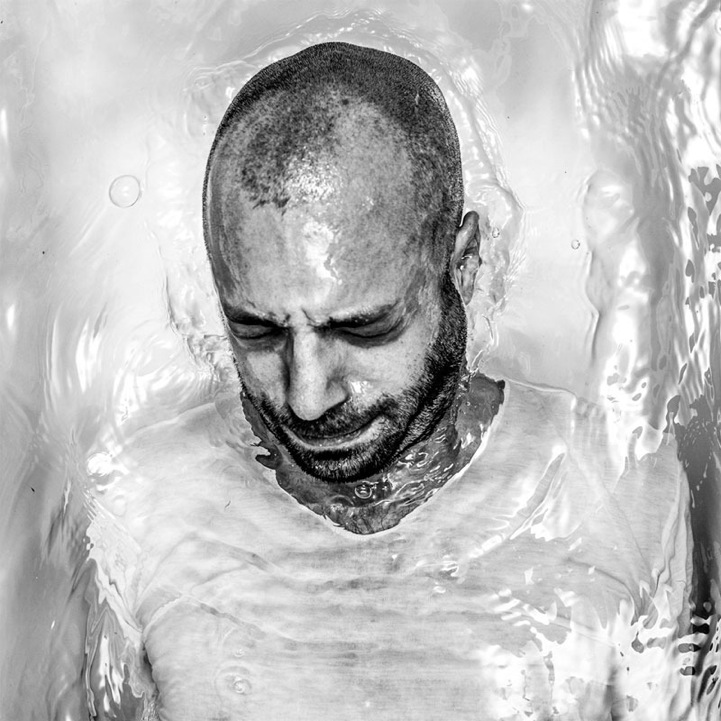by: R. E Hengsterman
“Apathy left the door wide open for me, and the third floor became my own personal playground. To which I took full advantage…”

7:38 a.m
Willie Boyd had spoken nothing beyond a grumble in over twenty years. The long-standing resident of room seven in the sixteen-bed locked psychiatric unit was a weak, crusty old man, with drooping eyes and an offset mandible. Crude crayon drawings accounted for more than half the wall space in Willie’s utilitarian hospital room. A soggy, day-old and half-eaten sandwich sopped up a puddle of spilled chocolate milk atop a small desk in the room’s far corner. The room’s window, a modest portal above eye level inter-laced crisscrossed wires between thick layers of bulletproof glass. Willie would die in this place someday. But until that day came, he was always the first stop on my daily safety rounds.
“Time to move Willie,” I said, throwing a solid blow into his right kidney while he slept. There was a delay – a misfired synapse – before a soft, involuntary cry escaped Willie’s lips. He was a shell of a man, stripped of all purpose and he offered no resistance. For years, I found pleasure in his vulnerability, as if I was toughening the hide of a small, helpless animal. Aside from being my personal punching bag, changing Willie’s room was one of my favorite activities. Willie needed routine, but after an impromptu room change, he would spend hours butting up against the door of his old room, like a malfunctioning robot with a short in his circuitry.
11:13 a.m
Patsy Dolan twirled and gyrated as if a bag of worms occupied the space underneath her pale, slack skin. Her speech was choppy, monosyllabic and peppered with grunts and spurts, not unlike someone with Tourette’s. Underneath a matte of thick, black hair her face cycled between a grimace and a smile. The second longest standing resident of B Ward, once a high-functioning engineer now afflicted with a profound case of Huntington’s Disease, Patsy lacked most of her motor control. Today in particular, her symptoms flared as she clenched and relaxed the tension in her hands in much the same way a farmer milks a cow’s udder. The progressive breakdown of nerve cells in Patsy’s brain crippled her emotional stability, making her prone to sudden fits of rage. I used this to my advantage. She and I had a long history.
“Hello Patsy,” I said, passing near one of her uncoordinated jerking limbs that flailed to strike me mid torso. Patsy stuttered and puffed, unable to produce the simple apology. I could see frustration and resignation in her eyes. She knew what was coming.
“Code Five! Code Five!” I barked into the radio.
Patsy put up a near demonic fight, due to the staff’s inability to control her flailing limbs as she resisted all attempts to subdue her. After the upheaval, she found herself pinned to the bed in four-point leather restraints.
For years, I had been the head security guard on the locked unit occupying the third floor of St. Mary’s Hospital, also known as the Behavior Unit. It wasn’t long into the job before I realized no one there gave a damn about the patient’s mental illness. Apathy left the door wide open for me, and the third floor became my own personal playground. To which I took full advantage.
2:01 p.m
Catherine Toth chain-smoked unfiltered cigarettes with an unbridled voracity. By the age of twenty-eight, she had married her high school sweetheart, given birth to two beautiful children and dissolved into a hypersexual psychotic with a profound emotional disconnect for all things rationale. And her husband, under the strain of his wife’s mental illness, along with the responsibility of raising two young children, had pocketed deep wrinkles under his eyes. In the nine months that his wife occupied a room on the third floor, he had aged half a dozen years. At 2:15, while her husband struggled to deal with unfamiliar diagnoses tossed across a spacious academic desk by a stern-faced young psychiatrist, Catherine sat through another supervised visit with her two young children.
I stood in the corner and watched as she struggled to control her distorted sense of reality. Desperate for attention, her young son, his arms reaching her knees, battled the secondhand smoke, but failed to draw even a casual glance from his mother. Catherine did two things, smoke, and fidget. In the baby carrier, her daughter’s cries went unnoticed. The forty-five-minute visit paid loyalty to the seven cigarettes she inhaled and nothing more.
After the visit, Catherine and I took the back stairs to the third floor. As we walked up the stairwell, I fumbled with my belt, then zipper, while she unbuttoned her shirt. She stopped a stair below and took me into her mouth as I fondled her breasts. For almost a year Catherine serviced me in the dirty access stairwell leading up to B Ward. In return, I provided her with stamped out cigarettes collected from the ashtray in the smoking room. We had an arrangement.
4 p.m
Thirty minutes before the end of my shift I headed towards Patsy’s room to remove her restraints. For almost eight hours she had lain drenched in her own urine. Second shift would have cited me for her prolonged, unnecessary confinement had they cared to check on her. I found Patsy still jerking and helpless against the restraints as I entered her nearly darkened room. I closed and locked the door, and the split second it took for the lock to click, an unfamiliar heaviness erupted at the base of my skull.
As consciousness flashed at the edges of my short, dreamless sleep, the thick stench of sweat, urine, and leather overpowered the room. “What happened?” I demanded.
There was no answer. “Who hit me? How long was I out for?” I begged.
I was woozy, with a headache and a queasiness I couldn’t suppress. I heard scuffling and attempted to move. Only my head was free, so I craned my head, and as I did, I saw Catherine at the foot of the bed, working on my shoes and uniform pants until both laid at my ankles. She was naked.
Out of the corner of my eye, Patsy danced wild and free, her unclipped fingernails scratched and scraped against my face, drawing faint splashes of blood.
“What the hell are you doing?” I screamed. The room, effused with moans and grunts, offered no response.
Catherine crawled from the foot of the bed and straddled my bare midsection. She found the spot she was looking for and rocked back and forth until I became hard. Meanwhile Patsy swirled and clacked, the limping unsteady assault that had moved from my face down to my chest continued to leave tiny swaths of blood from her dirty, pointed fingernails.
I fought against the leathers and built a scream from below my diaphragm when Willie appeared at the head of the bed and shoved a dirty cloth far into my mouth.
With his slack jaw working back and forth, Willie offered the dullest, wry smile before mouthing the question “Why?”





